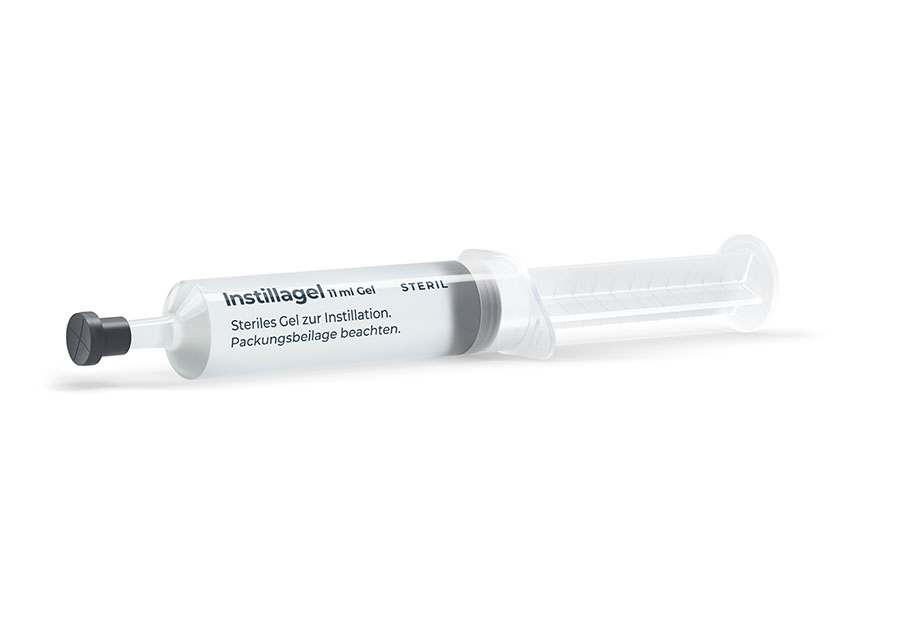Importance of lubrication during intermittent self-catheterisation
Importance of lubrication during catheterisation and transurethral procedures and examinations
Due to a lack of information, many patients are unaware of how important the use of a lubricant, such as Instillagel® or Endosgel®, can be for their health during transurethral procedures, such as intermittent self-catheterisation.
It is commonly assumed that lubricants are intended merely for inserting the catheter and often no lubricant is used at all with coated catheters out of ignorance or for reasons of cost. We would like to take this opportunity to provide the most detailed description possible of the steps you should take to find the lubricant of choice for your personal area of application.
Our advice is not intended to replace the mandatory, detailed directions of your physician or pharmacist. But it does provide you with the ability to gain a solid foundation of understanding, enabling you to identify what's important to you and ask your physician or pharmacist targeted questions.
1. Lubricants in use during intermittent self-catheterisation should always be sterile, especially easy to use and provided with an application system that enables direct instillation into the urethra.
Advantage: Instillation of the lubricant expands the folds of the otherwise star-shaped urethra and keeps them open during the procedure or catheterisation. The catheter is able to be advanced into the bladder via the urethra with almost no resistance. This minimises the risk of injury to the urethra and the pain associated with the procedure.
Important: If you choose to perform a procedure without first instilling the urethra with a sterile lubricant, such as Endosgel® (with auxiliary disinfecting properties) or Instillagel® (desinfecting with an additional local anaesthetic effect), then the penetrating catheter will expose the urethra step by step by pressure. Injury to the urethra and bleeding, resulting in strictures and permanent damage, are significantly more common in such cases.
2. Lubricants used for intermittent self-catheterisation should include a disinfectant
Advantage: In residential settings, it is very important to create the most aseptic conditions possible. Otherwise there is a risk that microorganisms could enter the urethra or the bladder during procedures, such as self-catheterisation. Disinfecting substances, such as chlorhexidine, eliminate a variety of common microorganisms with an exposure time of a few minutes, thus preventing urinary tract infections resulting from catheterisation.
Important: While a sterile product is aseptic, it does not protect against the introducation of microorganisms from the surrounding environment. If a product without an disinfecting additive is selected, then the patient will more commonly experience urinary tract infections that often require antibiotic treatment.
With urinary tract infections, there is always the risk that they may become frequent - which is referred to as recurrent infection - or even chronic.
3. Lubricants used for intermittent self-catheterisation in patients with hypersensitivities in the genital region should also contain a local anaesthetic, as in the case of Instillagel®.
Advantage: : Lubricants containing a local anaesthetic, such as lidocaine, anaesthetise the sensitive urethra within an exposure time of only 5 - 10 minutes, enabling the procedure to proceed practically pain-free. Patients who would otherwise move in reaction to the pain are more relaxed, thus further reducing the risk of injury considerably.











